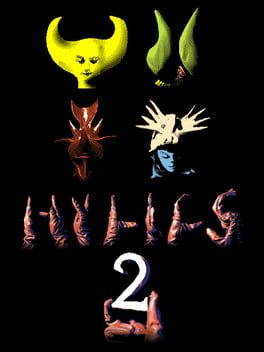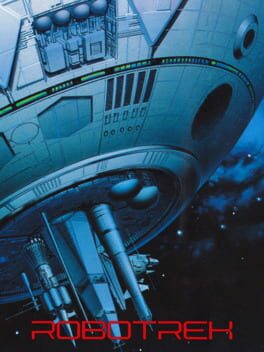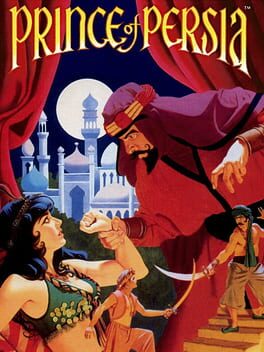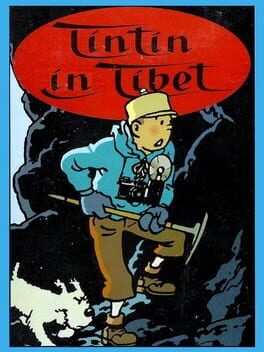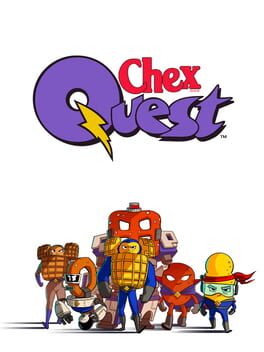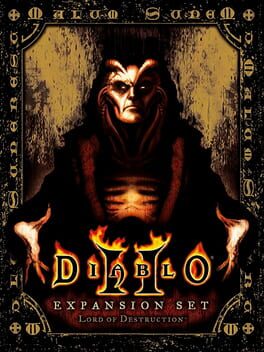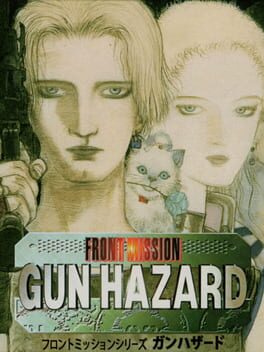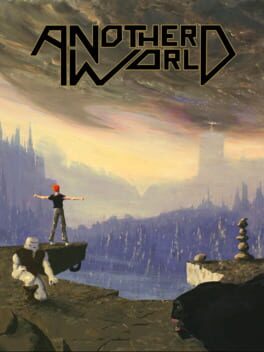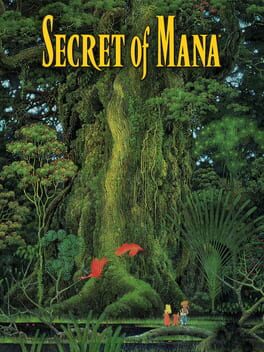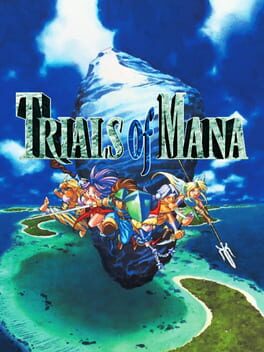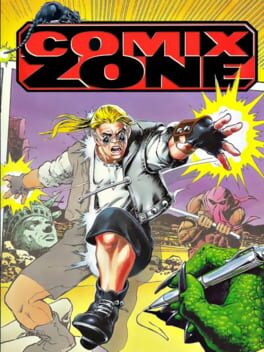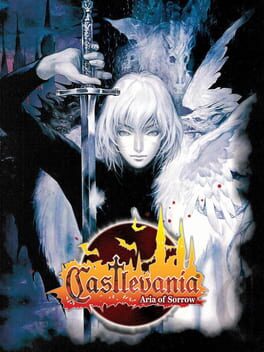2020
At bottom, the mechanics for this game are mostly pretty typical turn-based, party-based JRPG fare. But the graphics and the terminology and the worldbuilding are just so compellingly bizarre that it may take you many hours of playing before you even notice that. You're basically dropped into this surreal hallucination and have to find your bearings. It makes you feel like you're discovering the genre for the first time. That's not to say the game doesn't play with the trappings of the genre – instead of leveling, for instance, each stat has a different way of being boosted (I won't spoil the particulars); and the light platforming elements add something fresh and make moving around the world more fun (if often frustrating – more on that below).
But a lot of the pleasure here comes just from immersing yourself in this totally idiosyncratic environment. The world Lindroth has created feels so fully realized, and the strange, often very funny writing really helps to sell that. This is the rare RPG where you actually want to talk to every NPC you can find, just so you don't miss out on dialogue like "I've worked as a calthemite motivator, a sympathetic jumper, and a contract extruder. Seems I've finally settled on juice ranching" or "It all comes down to thoughtful use of comestibles." Just about every element is handled with such radical creativity and style, that typically rote genre tropes become actually enjoyable. To give just one example: whereas in lots of other RPGs I inevitably get frustrated with having to watch the long spell-casting animations over and over, the animations in Hylics are all so stunningly beautiful that watching them again and again is a joy. And I'd be remiss not to mention the killer soundtrack, which complements the visuals and writing perfectly.
The fact that this is a one-person passion project means you can expect some wonky mechanics and whatnot. As I mentioned, the platforming aspect can often be frustrating, since the art style sometimes makes depth perception really difficult. The absence of a leveling system can create some balance issues when it comes to enemy vs player strength. And although the puzzle-solving elements were mostly enjoyable, I sometimes got stuck not knowing what to do next and had to watch a guide or playthrough vid to be able to progress. The mashup of genres keeps things fresh, but it can also sometimes feel like Lindroth had an idea for another game entirely, and just decided to fold it into this one: the arcade-style platformer mini-game you need to play to progress at one point (and which unlocks a bonus at another) was too difficult for my taste, and could be a major stumbling block for someone who's not a skilled platformer player; and the old school, Dungeon Master-esque 1st person 3D dungeon crawler segment had me banging my head against a wall getting lost amidst a bunch of identical looking drab brick corridors. The strengths and charms of the game more than make up for its shortcomings though, and more often than not Lindroth uses the game's limitations to its own advantage, often cleverly turning a clunky element into a bit of absurdist humor (one favorite example: the way Wayne climbs ladders by simply jumping straight upward with a totally stiff body is pure gold).
Long story short: this is one of the most unique games I've played in a long time, and one of the most aesthetically pleasurable I've played ever. It's really no wonder this has garnered the cult following it has. If you have even the slightest interest in RPGs, and a taste for the unconventional, this is more than worth the 15 bucks to give a try.
But a lot of the pleasure here comes just from immersing yourself in this totally idiosyncratic environment. The world Lindroth has created feels so fully realized, and the strange, often very funny writing really helps to sell that. This is the rare RPG where you actually want to talk to every NPC you can find, just so you don't miss out on dialogue like "I've worked as a calthemite motivator, a sympathetic jumper, and a contract extruder. Seems I've finally settled on juice ranching" or "It all comes down to thoughtful use of comestibles." Just about every element is handled with such radical creativity and style, that typically rote genre tropes become actually enjoyable. To give just one example: whereas in lots of other RPGs I inevitably get frustrated with having to watch the long spell-casting animations over and over, the animations in Hylics are all so stunningly beautiful that watching them again and again is a joy. And I'd be remiss not to mention the killer soundtrack, which complements the visuals and writing perfectly.
The fact that this is a one-person passion project means you can expect some wonky mechanics and whatnot. As I mentioned, the platforming aspect can often be frustrating, since the art style sometimes makes depth perception really difficult. The absence of a leveling system can create some balance issues when it comes to enemy vs player strength. And although the puzzle-solving elements were mostly enjoyable, I sometimes got stuck not knowing what to do next and had to watch a guide or playthrough vid to be able to progress. The mashup of genres keeps things fresh, but it can also sometimes feel like Lindroth had an idea for another game entirely, and just decided to fold it into this one: the arcade-style platformer mini-game you need to play to progress at one point (and which unlocks a bonus at another) was too difficult for my taste, and could be a major stumbling block for someone who's not a skilled platformer player; and the old school, Dungeon Master-esque 1st person 3D dungeon crawler segment had me banging my head against a wall getting lost amidst a bunch of identical looking drab brick corridors. The strengths and charms of the game more than make up for its shortcomings though, and more often than not Lindroth uses the game's limitations to its own advantage, often cleverly turning a clunky element into a bit of absurdist humor (one favorite example: the way Wayne climbs ladders by simply jumping straight upward with a totally stiff body is pure gold).
Long story short: this is one of the most unique games I've played in a long time, and one of the most aesthetically pleasurable I've played ever. It's really no wonder this has garnered the cult following it has. If you have even the slightest interest in RPGs, and a taste for the unconventional, this is more than worth the 15 bucks to give a try.
1994
An RPG about the benefits of reading books. (Oh and I guess you build some robots too.)
The insanely convoluted story that gleefully mashes up genres and tones is a wild ride. You start out the son of a humble small town inventor, rescuing some kids who got stuck in a cave (after the petulant Elon Musk-esque scientist fails to do it), and before you know it there's hacker gangs and a crab-man and a doppelganger mayor having an affair with his secretary and a haunted mansion and a vengeful volcano god (who's not really a vengeful volcano god) and a pumpkin-head-man and brainwashing and aliens and more aliens and time travel and space travel and now you have doppelgangers and the whole time you're being trailed by a small-time reporter named Mint who's always trying to "get the scoop." It absolutely does not make anything clearer that the translation is garbage. But it's kind of all part of the charm.
I will say I don't know how anyone could have ever completed this back in the day without a guide. The item crafting system is way ahead of its time (ditto the battle system, which predates Pokémon by a few years), but it's also pretty damn complicated, with a lot of tedious trial and error if you don't know in advance what you're doing.
The insanely convoluted story that gleefully mashes up genres and tones is a wild ride. You start out the son of a humble small town inventor, rescuing some kids who got stuck in a cave (after the petulant Elon Musk-esque scientist fails to do it), and before you know it there's hacker gangs and a crab-man and a doppelganger mayor having an affair with his secretary and a haunted mansion and a vengeful volcano god (who's not really a vengeful volcano god) and a pumpkin-head-man and brainwashing and aliens and more aliens and time travel and space travel and now you have doppelgangers and the whole time you're being trailed by a small-time reporter named Mint who's always trying to "get the scoop." It absolutely does not make anything clearer that the translation is garbage. But it's kind of all part of the charm.
I will say I don't know how anyone could have ever completed this back in the day without a guide. The item crafting system is way ahead of its time (ditto the battle system, which predates Pokémon by a few years), but it's also pretty damn complicated, with a lot of tedious trial and error if you don't know in advance what you're doing.
1989
Gorgeous. Addictive. Infuriatingly difficult.
Note: I honestly don't know why anyone would prefer any of the other versions to the original Apple II one or to the initial DOS / Amiga ports (which polishes up the original while maintaining the simplicity and flatness). People talk about the SNES version having "better" graphics. Yeah, I guess if you like a bunch of pointless detail being added that makes it look like lots of other platformers from the era. The beauty of the original game is its striking minimalism (which, incidentally, helps the smoothness of the rotoscoping shine).
Note: I honestly don't know why anyone would prefer any of the other versions to the original Apple II one or to the initial DOS / Amiga ports (which polishes up the original while maintaining the simplicity and flatness). People talk about the SNES version having "better" graphics. Yeah, I guess if you like a bunch of pointless detail being added that makes it look like lots of other platformers from the era. The beauty of the original game is its striking minimalism (which, incidentally, helps the smoothness of the rotoscoping shine).
1994
I really wanted to love this. Or at least play it all the way through. The game world, story, and dialogue are just as charming and funny as everyone says they are. And the soundtrack is rad, obviously. But the old-school battle mechanics, plethora of items that all do basically the same thing, and un-intuitive "menu hell" made this get tedious real fast. Might try returning to it at some point.
1995
This is like the definition of a missed opportunity. The art is absolutely stunning – it translates the essence of the comic into interactive form better than any other comic-inspired game I know of. The use of depth, variation of scale, and parallax scrolling is amazing. And it innovates on the standard platformer format in really neat ways. But the particular mashup of platformer and adventure game doesn't work, since the two genres are at cross purposes: you need to explore the environments and interact with people and things in order to advance through the story, but you're also expected to avoid lots of obstacles along the way, and there's rarely a clear indication of what I should be interacting with vs what I should be avoiding.
It feels completely arbitrary that at one point jumping off some railway tracks leads me to fall to my death, while a minute later, jumping off those same railroad tracks lands me safely in the river, leading to a swimming segment of the game. Each level introduces a bunch of novel components that you have to die a bunch of time to be able to understand. This might not be so bad if dying 3 times didn't cause you to start the entire game over again from the very beginning.
Watch a playthrough of this one if you're intrigued.
It feels completely arbitrary that at one point jumping off some railway tracks leads me to fall to my death, while a minute later, jumping off those same railroad tracks lands me safely in the river, leading to a swimming segment of the game. Each level introduces a bunch of novel components that you have to die a bunch of time to be able to understand. This might not be so bad if dying 3 times didn't cause you to start the entire game over again from the very beginning.
Watch a playthrough of this one if you're intrigued.
2020
I was psyched to see this re-released on Steam (with Mac support no less), but I think it's a pretty good example of why not every old game needs an "HD" remake. Maybe it's just because I was a kid, but this seemed more fun when it looked like trash. Somehow I also don't remember Fred Chexter's quips being so aggressively annoying.
Sort of unique genre mashup that blends side-scrolling mech shooter gameplay ala Cybernator or Metal Warriors with RPG elements. The RPG aspect feels pretty slight, tbh, with leveling only increasing your HP (which maxes out at lvl 40 anyway) and unlocking new equipment or upgrades for purchase (equipment also levels up as you use it). But it definitely makes the gameplay more fun and more strategy-oriented than a more straight forward shooter.
It also leans into the storytelling aspect a lot more than most other games of the mech shooter genre, with a narrative that's a little bit like 'Metal Gear for dumdums', with some heavy cold war hangover vibes ("anyone attempting to make the world a better place must be secret evil masterminds!").
Graphics are gorgeous, level design is so-so, game mechanics are pretty smooth and fun despite a few annoying drawbacks like bad AI, an underutilized ally unit system, and the fact that exploding enemies injuring you really limits your options for play style and makes certain weapons and ally units worse than useless.
Anyway, I haven't seen this combination of elements in any other game before or since, and they really work well together! This was a worthwhile playthrough for sure, and I wish there were more games like it.
It also leans into the storytelling aspect a lot more than most other games of the mech shooter genre, with a narrative that's a little bit like 'Metal Gear for dumdums', with some heavy cold war hangover vibes ("anyone attempting to make the world a better place must be secret evil masterminds!").
Graphics are gorgeous, level design is so-so, game mechanics are pretty smooth and fun despite a few annoying drawbacks like bad AI, an underutilized ally unit system, and the fact that exploding enemies injuring you really limits your options for play style and makes certain weapons and ally units worse than useless.
Anyway, I haven't seen this combination of elements in any other game before or since, and they really work well together! This was a worthwhile playthrough for sure, and I wish there were more games like it.
1991
Gorgeous, but goddamn is this frustrating. I gave up after about an hour.
The platforming mechanics are clunky and extremely limited, and the "puzzle solving" isn't really puzzle solving at all. Most of the time you advance either by sheer luck, or by dying over and over again as you try each possible path only to be surprised by some threat that would have been impossible to predict. The game doesn't reward ingenuity, reasoning skills, or motor skills / hand-eye-coordination – it mostly just rewards sheer persistence through the endless slog of repeated, meaningless failure.
Prince of Persia (which this game clearly takes a lot of inspiration from) succeeds because its basic mechanics are so incredibly simple that while particular puzzles may be difficult, the solutions to those problems can always be clearly comprehended given the consistency of how character, environment, and this limited toolkit of player input all interact. And so although the player's continual failure is frustrating, you learn to play the game better with each attempt. Here I didn't feel like my failures were teaching me to play the game as a whole, I just felt like they were teaching me the particulars of each level design. There were so many new elements being introduced all the time that I never could get a grasp on the rules of this world (so many of which felt completely arbitrary anyway – which heights would kill you if you fell from them, for instance).
I can see why this was so widely admired when it was released. Unfortunately it definitely doesn't hold up.
The platforming mechanics are clunky and extremely limited, and the "puzzle solving" isn't really puzzle solving at all. Most of the time you advance either by sheer luck, or by dying over and over again as you try each possible path only to be surprised by some threat that would have been impossible to predict. The game doesn't reward ingenuity, reasoning skills, or motor skills / hand-eye-coordination – it mostly just rewards sheer persistence through the endless slog of repeated, meaningless failure.
Prince of Persia (which this game clearly takes a lot of inspiration from) succeeds because its basic mechanics are so incredibly simple that while particular puzzles may be difficult, the solutions to those problems can always be clearly comprehended given the consistency of how character, environment, and this limited toolkit of player input all interact. And so although the player's continual failure is frustrating, you learn to play the game better with each attempt. Here I didn't feel like my failures were teaching me to play the game as a whole, I just felt like they were teaching me the particulars of each level design. There were so many new elements being introduced all the time that I never could get a grasp on the rules of this world (so many of which felt completely arbitrary anyway – which heights would kill you if you fell from them, for instance).
I can see why this was so widely admired when it was released. Unfortunately it definitely doesn't hold up.
1993
Damn. This is a LOT rougher than I remembered from my childhood. Could have been so much better if they'd just focused more on smoothing out some of the mechanics: hit detection is garbage, ally AI is continually frustrating, and the having to wait for weapons to 'charge' thing feels like it just gets in the way of making the battles as fun as they could be. Also may possibly win the award for most confusing and unintuitive menu interfaces in any video game ever.
The story and characters are pretty forgettably boilerplate; the art style is cute and charming (but has me wishing it captured some of the beauty of the cover art); the music is one of the strongest things about the game, and is downright weird in some parts.
What I found most disappointing though was how oppressively linear it all felt. It's not like I was expecting an open world game or anything, but so many RPGs from that time managed to guide the player in much more subtle and elegant ways, where it didn't end up feeling like the only worthwhile things I could do at any given moment were either grind, or do the exact next thing the game just told me to do. Combine that with the fact that so much of the maps are empty and non-interactable (not so much as an unlocked treasure chest in some villager's house to pillage!) and the NPC dialogue being so rote and bland, and it makes the world feel sort of... dead. (Then again, I just came off of playing Chrono Trigger so maybe I'm just expecting too much here.)
All in all, this definitely feels like an RPG for kids.
Might come back to this another time, but for now I'm going to try the sequel (Seiken Densetsu 3 aka Trials of Mana) - just started and already it seems like an improvement.
The story and characters are pretty forgettably boilerplate; the art style is cute and charming (but has me wishing it captured some of the beauty of the cover art); the music is one of the strongest things about the game, and is downright weird in some parts.
What I found most disappointing though was how oppressively linear it all felt. It's not like I was expecting an open world game or anything, but so many RPGs from that time managed to guide the player in much more subtle and elegant ways, where it didn't end up feeling like the only worthwhile things I could do at any given moment were either grind, or do the exact next thing the game just told me to do. Combine that with the fact that so much of the maps are empty and non-interactable (not so much as an unlocked treasure chest in some villager's house to pillage!) and the NPC dialogue being so rote and bland, and it makes the world feel sort of... dead. (Then again, I just came off of playing Chrono Trigger so maybe I'm just expecting too much here.)
All in all, this definitely feels like an RPG for kids.
Might come back to this another time, but for now I'm going to try the sequel (Seiken Densetsu 3 aka Trials of Mana) - just started and already it seems like an improvement.
2014
1995
This is a vast improvement over Secret of Mana, and adds a whole slew of new and complex features that keep it interesting (like a day/night cycle and an expansive class system), but a lot of the flaws of that game are still present here.
In my SD2/SoM review I mentioned how "dead" the environments feel in that game, and how limited your options for interaction with them are. SD3/Trials is sprawling compared to its predecessor, with huge locations for you to explore... but with no reason whatsoever why you'd want to explore them. Every time you end up in any kind of castle, for instance, you find yourself with dozens of completely empty rooms to run through (occasionally peppered with a handful of NPCs who provide incredibly generic flavor text dialogue).
Likewise, while the variety of expendable items you start getting access to once you reach the Black Market were really cool, the equip-able gear follows the same simple pattern as in the previous game, with each new town offering new weapons, armor, and/or accessories that boost one of your stats by a few extra points. It would have added so much more to the game if there had been a little more variety to the gear, with different items offering different buffs or debuffs in addition to the stats, so you'd have to strategize a bit on what gear to equip and what gear to keep or sell.
I loved how they played up the arcade beat-'em-up vibe: the "VICTORY!" message after clearing a screen, the roulette wheel when opening a chest, etc. But at the same time, the melee combat leaned a bit too much toward mindless, repetitive A-button smashing, while at the same time also maintaining a lag between attacks that slows down the combat (the charge bar from SD2 is gone, but the lag is still there - only whereas in SD2 you could attack before the charge bar filled for a lesser amount of damage, here there's a hard limit to how frequently you can attack). Just about the only element of strategy in melee combat is if and when to use your tech, although very often you'll end up clearing the screen before your tech even activates.
Oh well. It is what it is, I suppose. Overall, this was a bit of an odd mix of overly simple and needlessly complex elements for me. I can see why people love this game. I had fun playing it, but eventually got bored.
In my SD2/SoM review I mentioned how "dead" the environments feel in that game, and how limited your options for interaction with them are. SD3/Trials is sprawling compared to its predecessor, with huge locations for you to explore... but with no reason whatsoever why you'd want to explore them. Every time you end up in any kind of castle, for instance, you find yourself with dozens of completely empty rooms to run through (occasionally peppered with a handful of NPCs who provide incredibly generic flavor text dialogue).
Likewise, while the variety of expendable items you start getting access to once you reach the Black Market were really cool, the equip-able gear follows the same simple pattern as in the previous game, with each new town offering new weapons, armor, and/or accessories that boost one of your stats by a few extra points. It would have added so much more to the game if there had been a little more variety to the gear, with different items offering different buffs or debuffs in addition to the stats, so you'd have to strategize a bit on what gear to equip and what gear to keep or sell.
I loved how they played up the arcade beat-'em-up vibe: the "VICTORY!" message after clearing a screen, the roulette wheel when opening a chest, etc. But at the same time, the melee combat leaned a bit too much toward mindless, repetitive A-button smashing, while at the same time also maintaining a lag between attacks that slows down the combat (the charge bar from SD2 is gone, but the lag is still there - only whereas in SD2 you could attack before the charge bar filled for a lesser amount of damage, here there's a hard limit to how frequently you can attack). Just about the only element of strategy in melee combat is if and when to use your tech, although very often you'll end up clearing the screen before your tech even activates.
Oh well. It is what it is, I suppose. Overall, this was a bit of an odd mix of overly simple and needlessly complex elements for me. I can see why people love this game. I had fun playing it, but eventually got bored.
1995
Echoing just about every other review: this gets an A+ for concept, A+ for aesthetic, and probably a C for gameplay. I didn't find the combat to be too hard (it skews on the easy side, imo, especially compared to other beat-'em-ups from this era), but you don't get nearly enough heals. The biggest flaw though, as another review mentioned: making it so that you take damage every time you punch through an object when the game also REQUIRES you to punch through objects constantly in order to progress is just insanely stupid!
